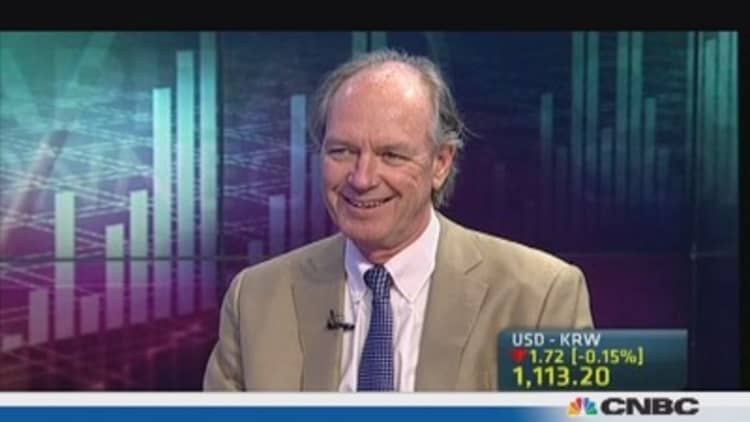Net capital outflows from Asia's fourth largest economy - South Korea - are expected to hit a record high this year and the culprit behind the move are not the usual suspects.
Korean residents - not foreigners - are driving money out of the country as a large current account surplus leads them to diversify and invest their money aboard, according to Nomura.
South Korea's net capital outflows surged to $31 billion in the first half of the year, and if that pace continues unchecked, the funds heading out for the full year would exceed the record $43 billion set in 2008 during the global financial crisis, Young Sun Kwon, economist at Nomura said.
"There is a striking contrast between now and then. In 2008, foreign investors' sold off Korean equities and bonds. Net capital outflows from foreigners totaled $32 billion in 2008," Kwon said. "Now, net capital flows from foreigners remains positive at an annual rate of $11 billion, the smallest reading since 2008."
(Read more: Asia's fight to stem fund outflows just starting)
Instead, net capital outflows from Korean residents reached a $73 billion run rate in 2013, Kwon said.
"We expect Korea to increase overseas investment, supported by its large current account surplus," Kwon said, adding that as savings increase in the country, investors are looking for higher yields elsewhere.
South Korea's seasonally adjusted current account surplus hit a record high of $7.82 billion in May, but slipped to $4.79 billion in June.

Still, evidence of increased Korean investment abroad is mounting.
In June, South Koreans became the biggest buyers globally of overseas commercial property with an investment of $5 billion in the first five months of the year - a huge increase from 2012, according to real estate consultancy Jones Lang LaSalle.
(Read more: China, Korea drive Europe commercial property boom)
Investment by South Korea's biggest exporters, looking for better market opportunities and cheaper costs in terms of production, is also driving capital flows overseas, Kwon said.
"For example Samsung Electronics, or Hyundai Motors, they continue to increase their overseas production. On one hand, the domestic nominal wage has increased, so maybe their looking for cheaper cost in terms of production, at the same they're looking for better market access," Kwon said.
In May, Hyundai Motor had said it was considering building car manufacturing plants abroad amid labor disputes at home and a rising local currency.
The investment yield in South Korea will continue to ease, because gross domestic product (GDP) growth will keep slowing, according to Kwon.
"After the global financial crisis, the potential GDP growth in Korea has continued to slow and at the same time there is large savings," Kwon said. "So they [investors] must diversify their money and if they don't then their yield on investment in the domestic market will go down further."
South Korea's economy did grow at its fastest pace in two years in the first quarter of 0.9 percent from the previous quarter, but compared with a year earlier, it grew just 1.5 percent, which was a three-year low pace hit in the fourth quarter.
(Read more: South Korea Pulls Off Decent Growth, but What's Missing?)
—By CNBC.com's Rajeshni Naidu-Ghelani; Follow her on Twitter @RajeshniNaidu

